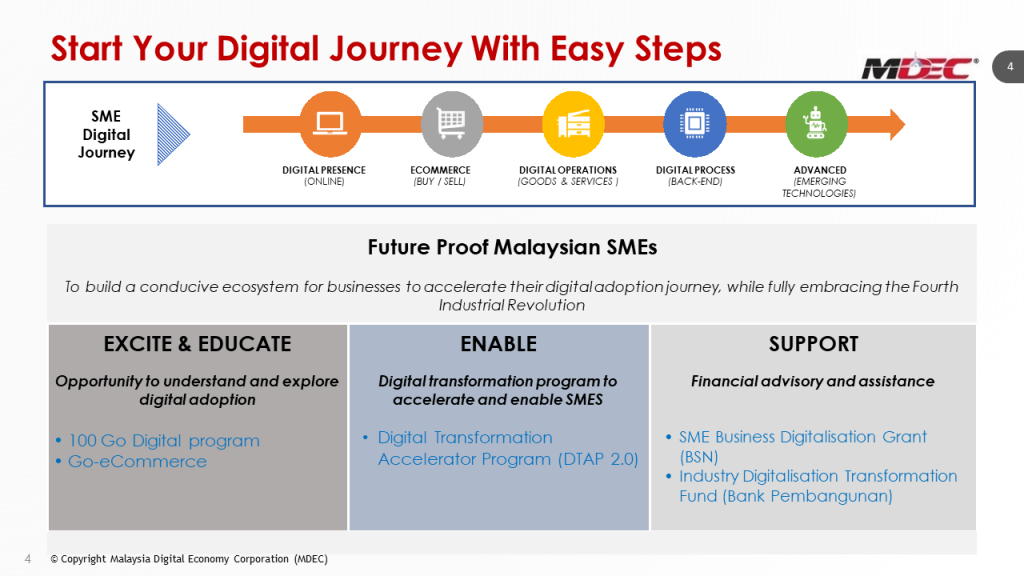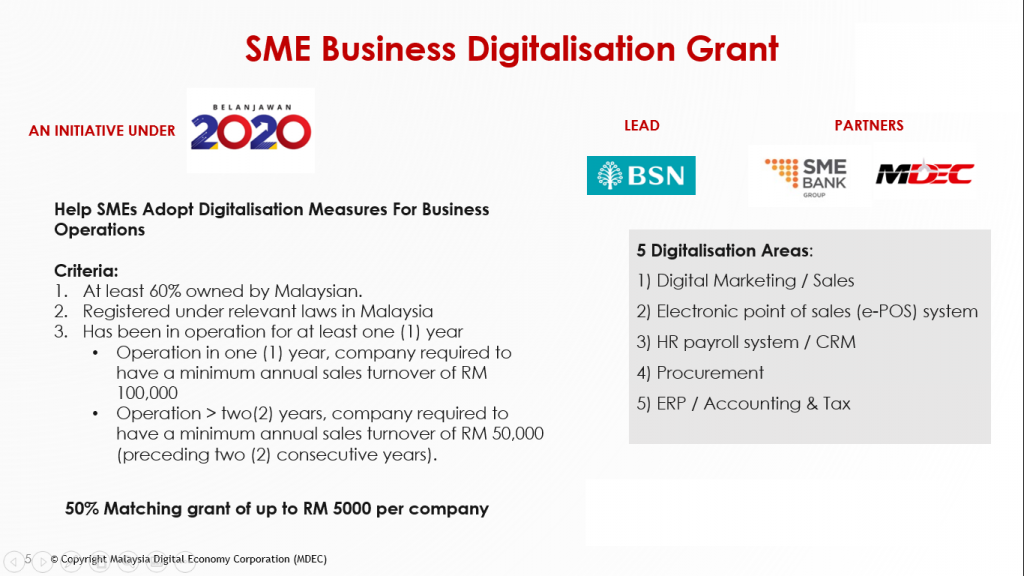SMEs remain a relatively untapped market as far as digital transformation is concerned. Despite the many potential benefits that digitisation can achieve in manufacturing, supply chains, customer relations, and other aspects, the number of SMEs who actually make the effort to transform digitally remains disproportionate. There are many reasons for this however, including cost restrictions or a lack of awareness and understanding.
With the advent of the 2020 COVID-19 outbreak, things are beginning to change. The pandemic has gotten so severe that governments around the world are implementing lockdowns and restricting movement to prevent the spread of the coronavirus. As a result, thousands upon thousands of businesses have to shut their doors and shift towards remote working in order to survive. Many businesses that are unable to do so might unfortunately be forced to close indefinitely.
It is this devastating blow to the global business ecosystem that finally makes the importance of digitisation crystal clear. SMEs are the most vulnerable type of business during the COVID-19 outbreak. The SMEs that managed to implement their digital transformations early or even before the outbreak are the ones who are surviving; some of whom are even thriving.
In a webinar hosted by SME Magazine on 3 May, Muhundhan Kamarapullai, Director of Business Digital Adoption at the Malaysia Digital Economy Corporation (MDEC) discussed the importance of digital transformation, especially for SMEs during a time of great change such as now.

He also elaborates on what MDEC has been doing to drive significant digital transformation and adoption across the public and private sectors in Malaysia in order to increase the number of digitally-skilled Malaysians, digitally-powered businesses, and digital Investments in the country.
In order to push the digital economy forward, Mr Kamarapullai explains that workers will need to be digitally savvy and contribute to the growth of the regional digital economy. There also needs to be clear end-to-end support for businesses, growing startups, digitalising SMEs, and globalising scale-ups; as many of these often lack the resources and funding to overcome the digitisation challenge by themselves.
In the case of Malaysia, the country has proven itself as a global test bed for ICT and digital for nearly 23 years. It has been recognised globally as a prime investment opportunity for animation, game development, and esports, and will only grow ever more appealing with the appropriate support in digital development.

One such effort to help future proof Malaysian SMEs is the SME Business Digitalisation Grant. As explained by Mr Kamarapullai, it is a collaboration between the Malaysian Ministry of Finance (MOF), Bank Simpanan Nasional, SME Bank and, MDEC in order to manage the government grant that supports SME digital adoption in daily operations.
Mr Kamarapullai also suggested a few areas and guiding principles for digitisation that can help as quick wins for businesses. These include remote working and communications, digital marketing, ecommerce, digital payments, HR, and more.
If you would like to view the full webinar, you can find it here on SME Magazine’s Facebook Page.








